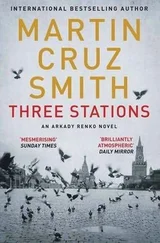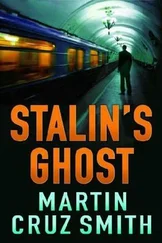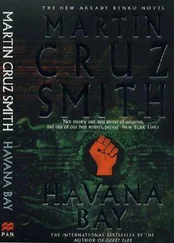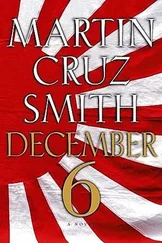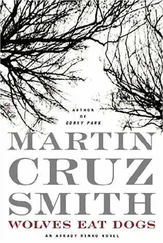Martin Smith - Tatiana
Здесь есть возможность читать онлайн «Martin Smith - Tatiana» весь текст электронной книги совершенно бесплатно (целиком полную версию без сокращений). В некоторых случаях можно слушать аудио, скачать через торрент в формате fb2 и присутствует краткое содержание. Жанр: Полицейский детектив, на английском языке. Описание произведения, (предисловие) а так же отзывы посетителей доступны на портале библиотеки ЛибКат.
- Название:Tatiana
- Автор:
- Жанр:
- Год:неизвестен
- ISBN:нет данных
- Рейтинг книги:4 / 5. Голосов: 1
-
Избранное:Добавить в избранное
- Отзывы:
-
Ваша оценка:
- 80
- 1
- 2
- 3
- 4
- 5
Tatiana: краткое содержание, описание и аннотация
Предлагаем к чтению аннотацию, описание, краткое содержание или предисловие (зависит от того, что написал сам автор книги «Tatiana»). Если вы не нашли необходимую информацию о книге — напишите в комментариях, мы постараемся отыскать её.
Tatiana — читать онлайн бесплатно полную книгу (весь текст) целиком
Ниже представлен текст книги, разбитый по страницам. Система сохранения места последней прочитанной страницы, позволяет с удобством читать онлайн бесплатно книгу «Tatiana», без необходимости каждый раз заново искать на чём Вы остановились. Поставьте закладку, и сможете в любой момент перейти на страницу, на которой закончили чтение.
Интервал:
Закладка:
The marchers lit candles and bore photographs that showed Tatiana as a negligently pretty woman at a desk, reading in a hammock, walking a dog, on the front line of a war zone. Her former editor, Sergei Obolensky, was in the forefront of the crowd. He was easy to spot because of his shaved skull, trim beard and wire-rimmed glasses. He and Arkady had met once and thoroughly despised each other. Through a bullhorn the editor demanded, “Where is Tatiana? What are they trying to hide?”
Anya and her camera seemed to be everywhere at once. Arkady had to snag her by the sleeve.
“You didn’t tell me about this.”
She said, “You would have told me not to come. This way we don’t fight. The police claimed that she jumped from her balcony and took her life. We demanded an independent autopsy, and now they claim they can’t produce her body. How can they lose a body?”
“They’ve lost bodies for years. It’s one of their functions. More to the point, do you have a permit for this demonstration? Without a permit this could be regarded as a provocation.”
“It is a provocation, Arkady. In the spirit of Tatiana Petrovna, that’s exactly what it is. Why don’t you join us?”
While Arkady hesitated, Obolensky appeared. “Anya, what are you doing back here? I need you up front to take pictures.”
“A moment, Sergei. Remember Investigator Renko? He marched with us.”
“Is that so? The one good apple among the rotten. We’ll see if it’s true or not.” Obolensky gave Arkady a mocking salute before moving on to welcome a group of university students to the demonstration.
“We’ll have two hundred marchers at least,” Anya told Arkady.
“You should have told me.”
“I knew what your answer would be and you didn’t disappoint.”
Everything was simple for her, he thought, so jet-black or snow-white. She held the advantage because he had never had that purity of conviction. If she was a spoiled child, he was a wet blanket, a spoilsport. As a journalist, Anya wanted to be close to the action, while Arkady was a man in retreat. She didn’t pretend to be faithful and he didn’t expect her to be. They were interim lovers. It simply happened that the margins of their lives overlapped. There were no expectations.
“Go home, Arkady,” Anya said.
Obolensky returned to put a proprietary grip on her arm and led her to a bench where a man with a bullhorn was haranguing the wind. Arkady thought Tatiana Petrovna would have smiled to see who had come to pay their last respects. It was a middle-aged intellectual crowd. Publishers who abandoned their writers, writers who wrote for the drawer, artists who had become wealthy by turning Social Realism into kitsch.
He wondered what other accusations could be hurled at them. That they once were a special generation that had overthrown the dead weight of an empire? That they were romantics who lamented a rendezvous with history that never took place? That they had gone as soft as rotting pumpkins? That they had rallied around Tatiana when she was dead but stayed at arm’s length when she was alive? That they were old?
It seemed to Arkady that Obolensky didn’t need hundreds of marchers, he needed thousands. Where were the kids who Twittered and texted and organized a march of thousands with their iPhones? Where were the liberals, communists, anti-Putins, lesbians and gays? In comparison, Obolensky’s march was a garden party. A geriatric ward.
If it had been up to Arkady, he would have sent everyone home at this point. Nothing that he could point to in particular, only an electric imbalance in the air waiting to be discharged. A protest was fitting because Tatiana was indeed a troublemaker. She attacked corruption among politicians and police. Her favorite targets were the former KGB who dwelled like bats in the Kremlin.
Arkady separated from the crowd and walked around the building. On one side was a row of derelict apartment houses, on the other, a chain-link fence and a construction site that had barely gotten off the ground. Stacks of rebar were covered with rust. Work trailers were abandoned, their windows punched in and swastikas spray-painted on the doors. A circle of men gathered around a cement mixer. They had shaved heads and wore red, the totemic color of the Spartak football club. At Spartak games they were often kept in a caged section of the stands. Arkady watched one pick up an iron rod and take a test swing.
By the time he returned to the demonstration it was well under way. There was no format. People shared the megaphone and poured out their guilt. Each had, at some point, advanced his or her career by pulling an article that Tatiana Petrovna had written at the risk of her neck. At the same time, they recalled, she knew what her end would be. She didn’t own a car because, as she said, it would only be blown up, and what a waste of a perfectly good car. She could have moved to a larger flat-could have blackmailed her way to material luxury-but was content with her dead-end apartment, its rickety lift and insubstantial doors.
“Every snail prefers its own shell,” Tatiana had said. But she knew. One way or another, it was just a matter of time.
Afternoon faded into twilight and the television news team had gone before the poet Maxim Dal stepped forward. Maxim was instantly recognizable, taller than anyone else, with a yellow-white ponytail and sheepskin coat and so heroically ugly that he was kind of beautiful. As soon as he got his hands on the megaphone, he condemned the investigation’s lack of progress.
“Tolstoy wrote, ‘God knows the truth, but waits.’ ” Maxim repeated, “God knows the truth, but waits to rectify the evil that men do. Tatiana Petrovna did not have that kind of patience. She did not have the patience of God. She wanted the evil that men do to be rectified now. Today. She was an impatient woman and for that reason she knew this day might come. She knew she was a marked woman. She was small but so dangerous to certain elements in the state that she had to be silenced, just as so many other Russian journalists have been intimidated, assaulted and murdered. She knew she was next on the list of martyrs and for that reason, too, she was an impatient woman.”
One of the demonstrators fell to his knees. Arkady thought the man had tripped until a streetlight shattered. A general intake of breath was followed by cries of alarm.
From the edge of the crowd, Arkady had a clear view of the skinheads scaling the chain-link fences like Vikings boarding a ship. Just a handful, no more than twenty, wielding iron rods like broadswords.
Sedentary editors were no match for young thugs whose days were spent lifting weights and practicing karate blows to the kidney or the back of the knees. Professors backpedaled, taking their dignity with them, trying to fend off blows. Placards toppled into chaos as appeals were answered with kicks. A whack to the back took the air away. A brick to the head peeled back the scalp. Rescue seemed imminent when a police bus arrived and unloaded riot police. Arkady expected them to come to the aid of the demonstrators; instead, they waded into the marchers with batons.
Arkady was challenged by a mountainous policeman. Overmatched, he hit the man in the windpipe, more a cheap shot than a knockout blow, but the policeman staggered in circles searching for air. Anya was in the middle of the fray taking photographs while Maxim protected her, swinging the megaphone like a club. Arkady glimpsed the editor, Obolensky, also holding his own.
Arkady, however, went down. In a street fight the worst place to be was on the ground and that was where he was headed. Whose foot tripped him he did not know, but two riot police began dancing on his ribs. Well, he thought, in Victor’s words, this was truly fucked.
Читать дальшеИнтервал:
Закладка:
Похожие книги на «Tatiana»
Представляем Вашему вниманию похожие книги на «Tatiana» списком для выбора. Мы отобрали схожую по названию и смыслу литературу в надежде предоставить читателям больше вариантов отыскать новые, интересные, ещё непрочитанные произведения.
Обсуждение, отзывы о книге «Tatiana» и просто собственные мнения читателей. Оставьте ваши комментарии, напишите, что Вы думаете о произведении, его смысле или главных героях. Укажите что конкретно понравилось, а что нет, и почему Вы так считаете.

